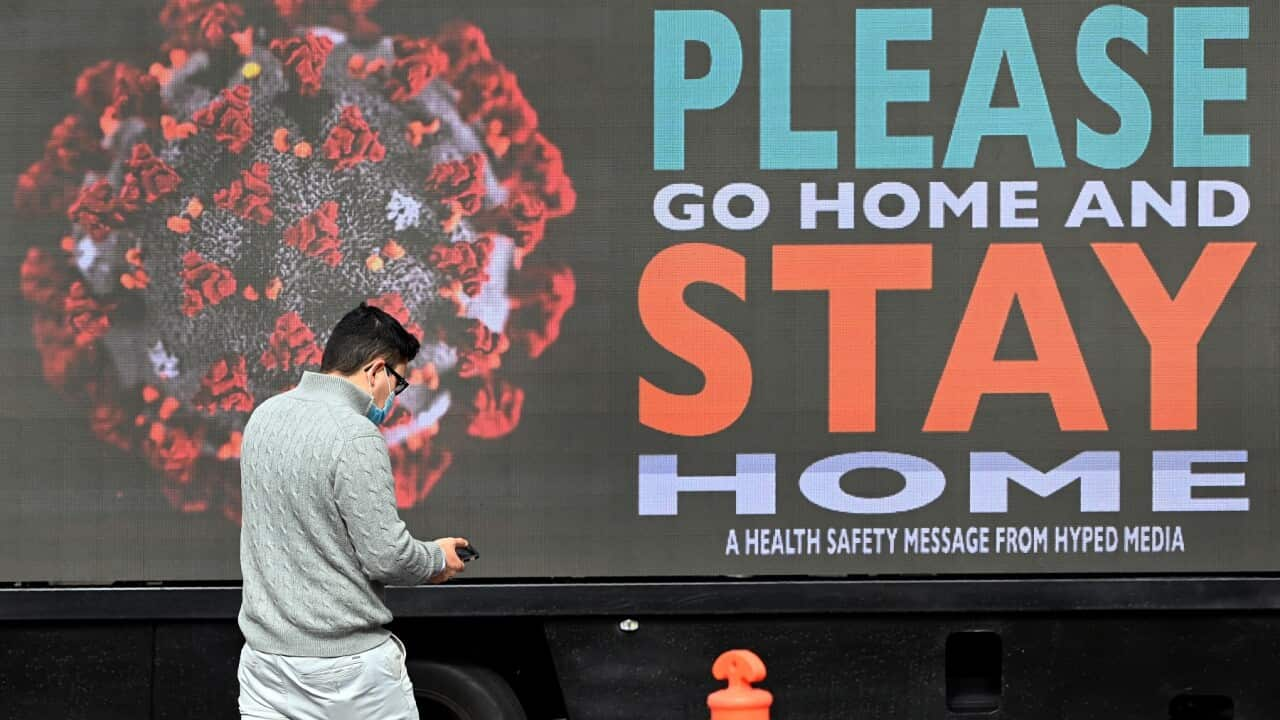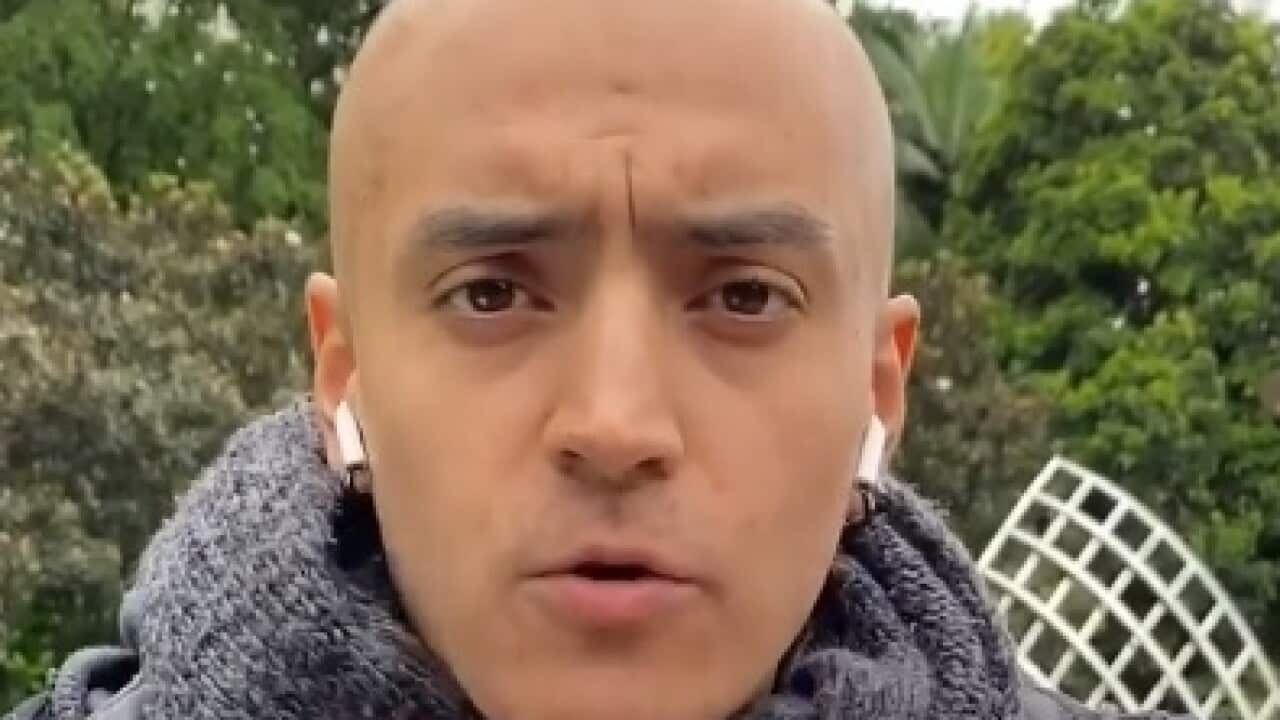After learning she had contracted coronavirus, Carolina* didn’t know what to fear more: the potential of losing her battle against a potentially life-threatening virus, or reporting the positive test result to her boss and losing her only source of income.
She had already lost her other casual jobs and was down to working only a handful of hours at a restaurant.
Now, she had to isolate herself for at least 14 days and give up the little income she had.
Due to her international student status, Carolina does not qualify for federal government grants such as JobKeeper or JobSeeker.
With no income or government support, her situation became desperate.
Highlights:
- Carolina was unable to obtain the government assistance of $1500 for people infected with COVID-19 who must stay at home.
- Carolina's partner, another international student, also tested positive for COVID-19.
- The Colombian couple managed to obtain some financial aid from the government.
Three days of agony
Carolina remembers the day she began feeling her body ache as if she was getting the flu.
As the hours passed, she began having chills and her temperature rose above 38 degrees. The fever lasted all night.
The following morning, the symptoms did not subside, so she began to suspect that she could be infected with COVID-19.
Carolina reviewed the few places she had visited in recent weeks. Without family in Australia and left to study from home while abiding by Melbourne restrictions, the international student had only gone to the shops and the restaurant where she was employed.
She called her boss to tell him that she felt ill. He asked her to follow established protocols: to get tested and self-isolate whilst awaiting the results. The uncertainty lasted for three days.
On Thursday, July 30, Carolina received the news she had feared.
“It was one of the most difficult moments that I've had in Australia. When I got the call and they started giving me instructions, I said, 'I'm going to die.' I started crying, I cried and I cried. I thought, 'I'm going to go to a hospital, they are going to intubate me, I won't be able to breathe, I'm going to die'," she said.
In despair, she called her family in Colombia. It was night time in her homeland, but her mother comforted her.
I told my mum ‘I'm positive, I'm going to die.
“The first three days were extremely tough. Anxiety, the fear that something will happen to you while away from family is the biggest fear. I thought I was not going to see them again.”
Two days that cost $1500
Fortunately, she was able to claim sick leave at her workplace.
Although it was not much, with this amount Carolina was able to cope with the first days of self-isolation.
Two days after Carolina was diagnosed with COVID-19, the federal government announced a subsidy of $1500 for all Victorian workers with no sick leave.
The announcement was a relief for many people with temporary visas living in Victoria who, until that moment, had been completely excluded from federal government support.
However, for Carolina, the annoucement came two days too late.
"They told me that I was not eligible because the aid was from August 2 (the date of the announcement) and my positive result was on July 30.”
Carolina was instead offered $450 in financial aid that the Victorian government grants to anyone who must confine themselves while awaiting their test results.
Infected as a couple
Days later, Carolina’s partner Andrés*, also fell ill with COVID-19. The food delivery driver was also not able to work, leaving the couple stuck at home, without any income.
It all came together. We had to pay the rent, school fees, our visa was expiring, we had to pay for food, utilities ... and with the help that I had from my work it was not enough.
Fortunately, Andrés did receive the $1500 subsidy since he fit the eligibility requirements of being an independent worker, without any work benefits or sick leave.
The grant helped the couple catch up on their rent.
“That money was a blessing. Because with my work we couldn't afford the full rent for the apartment, so we spoke to the owner and negotiated a moratorium. So when the government help came, we managed to pay the rent."
The help of friends during those three weeks of confinement was essential for the couple.
Although they had already managed to stay on top of the rent and food with Carolina's employment benefits, they needed someone to do the shopping and keep an eye on them.
“[My friends] helped me with grocery shopping. They left my things outside the apartment and once I knew they were gone, I would go out and pick them up.”
One friend suggested that they apply for the financial aid of up to $3000 offered to international students in Victoria whose income has been affected by the coronavirus.
The Rent Relief Grant is an assistance fund to provide rental assistance payments to Victorians, including international students, who are experiencing difficulties paying their rent due to the pandemic.
“We also applied for that help and we are waiting for the reply. We believe that they will give it to us because they called us from the real estate agency to tell us that the government had contacted them to reach a rental payment agreement.”
After three weeks of stress, anguish, and confinement, Carolina and Andrés passed one of the most difficult tests of their lives: they defeated COVID-19.
Andrés is getting ready to get on his motorcycle and begin working again.
Carolina has returned to the restaurant with a smile and is grateful to still have her job after all that she has battled through.
* Their real names have been changed.
Between 5 am and 8 pm, people in Melbourne can leave home for exercise, to shop for necessary goods and services, for work, for health care, or to care for a sick or elderly relative.
All Victorians must wear a face covering when they leave home, no matter where they live.
People in Australia must stay at least 1.5 metres away from others. Check your state's restrictions on gathering limits.
If you are experiencing cold or flu symptoms, stay home and arrange a test by calling your doctor or contact the Coronavirus Health Information Hotline on 1800 020 080.



